
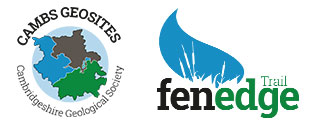
Monthly talks and occasional Field trips
We have a programme of 10 Monthly talks running from September to June each year, held on the second Monday of every month. All talks (unless specified otherwise) are at 7.30 pm (doors open 7.00 pm). Everyone welcome, free to CGS members, £3 for non members. Talks are held at St Andrew’s Centre, Histon: Hall 1, St Andrews Centre, School Hill, Histon, Cambridge CB24 9JE. The Citi 8 bus stops outside the Centre and the Guided Bus is 15 minutes walk away. There is a free car park approximately 200m along the road just past a small supermarket.
We organise a few Field trips each year. These include visits to local sites with geological interest and walks on the Fen Edge Trail to explore the landscape, geology and associated history. Most are open to everyone and often free (or with a small charge to non-members). All require booking by contacting us. Children are welcome at talks, on walks and on some field trips, usually free of charge but anyone under 18 needs to be accompanied by an adult. Free Walk Guides to our series of Fen Edge Trail walks can be downloaded here.
Our meetings programme for Sept 2025 to June 2026 is as follows:
Monthly talk: Monday 9th February 2026
Determining the shape, size, and internal structure of the Earth
by Mike Tuke
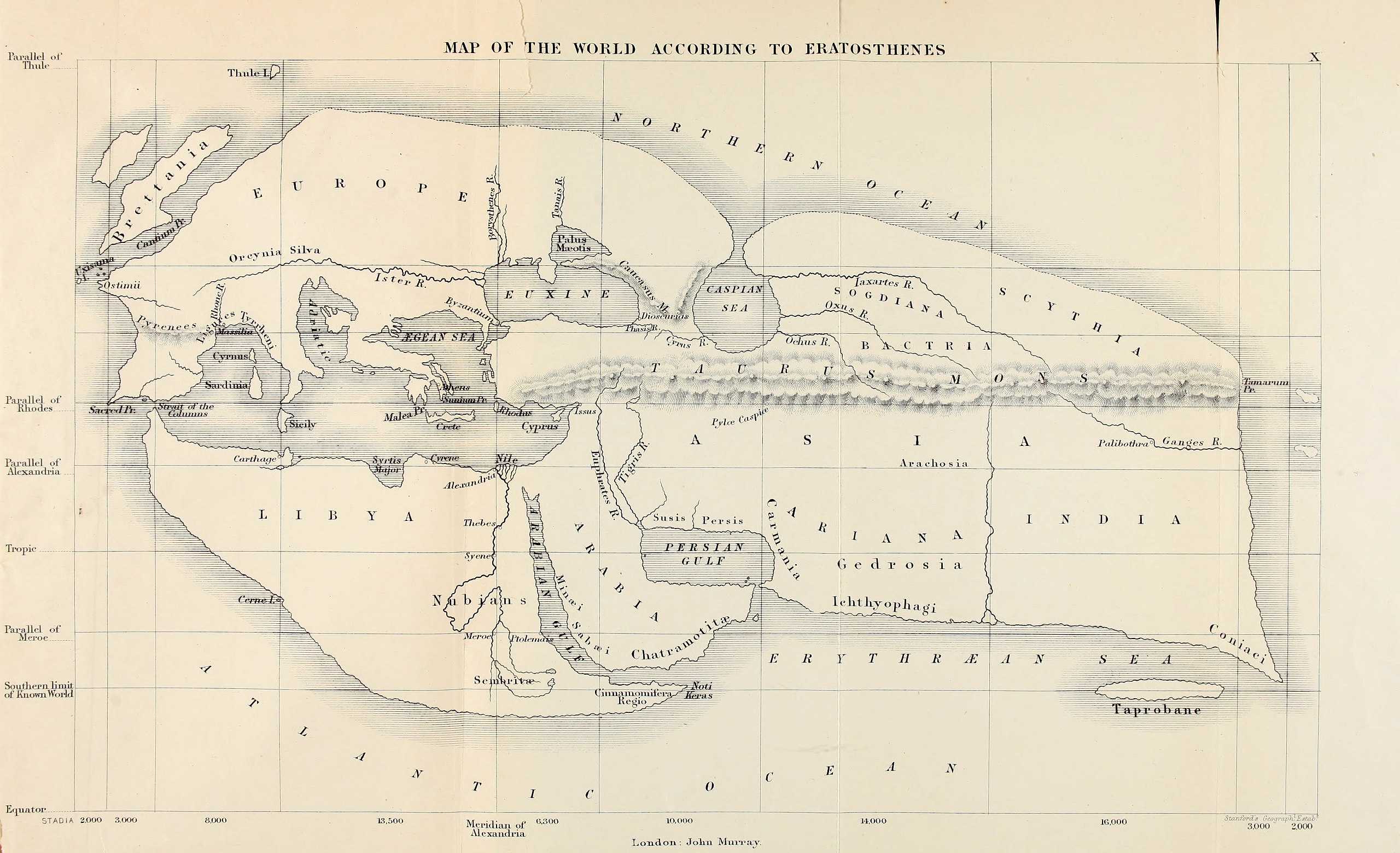
This meeting will consist of several short demonstrations to illustrate the following:
1 How 2000 years ago the Greeks knew that the Earth was a sphere and how they calculated its circumference;
2 How the speed of rotation affects the direction of wind and ocean currents and why the spin was slightly altered by the ice ages;
3 Mike will demonstrate how to measure the density of some rocks and compare that with the density of the whole Earth;
4 and use that information along with the distribution of earthquakes to learn about the internal composition of the Earth.
Monthly talk: Monday 9th March 2026
Carboniferous Park
Giant Millipedes and other new fossil discoveries
from the Northumberland Basin
by Professor Neil Davies
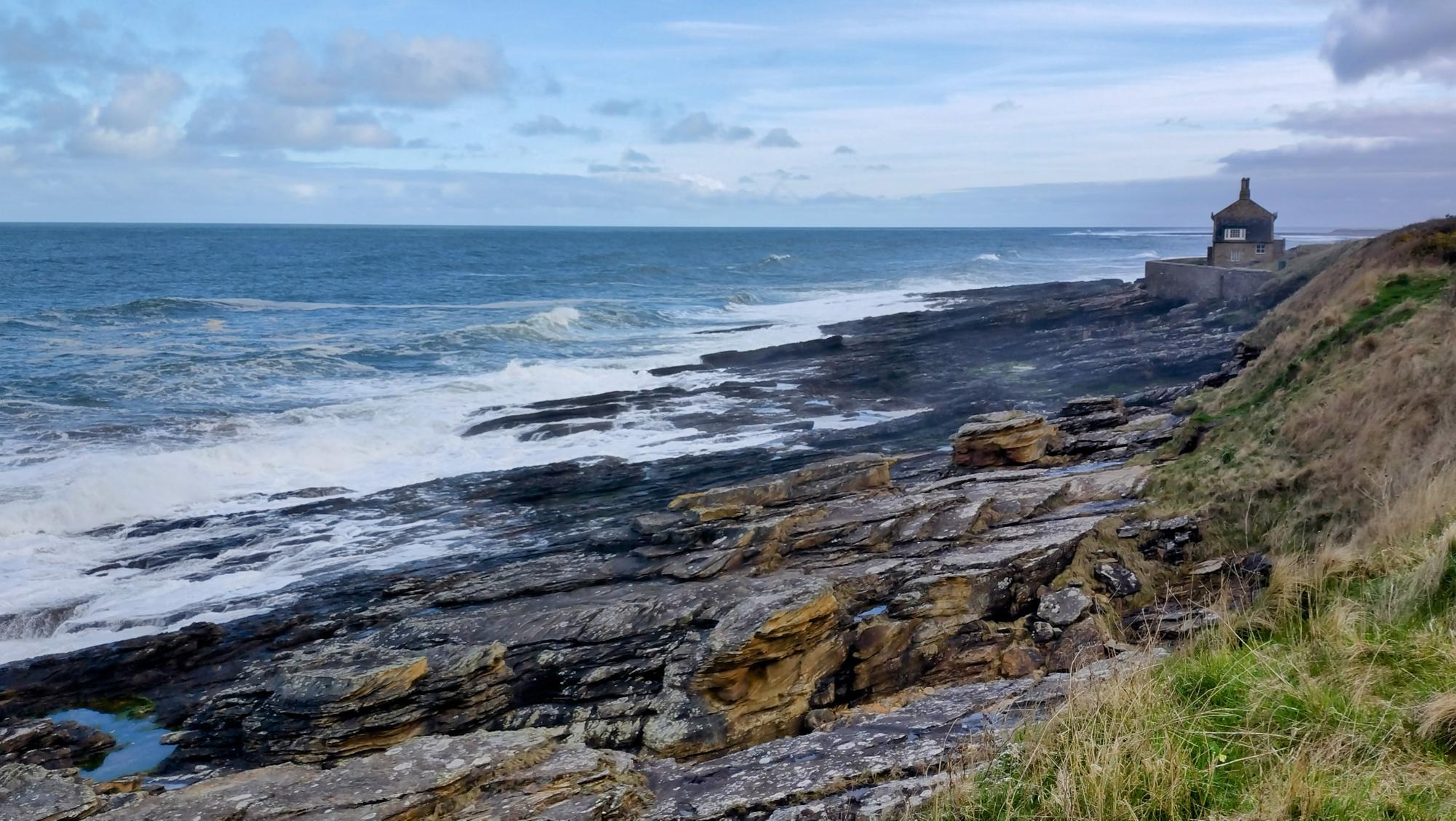
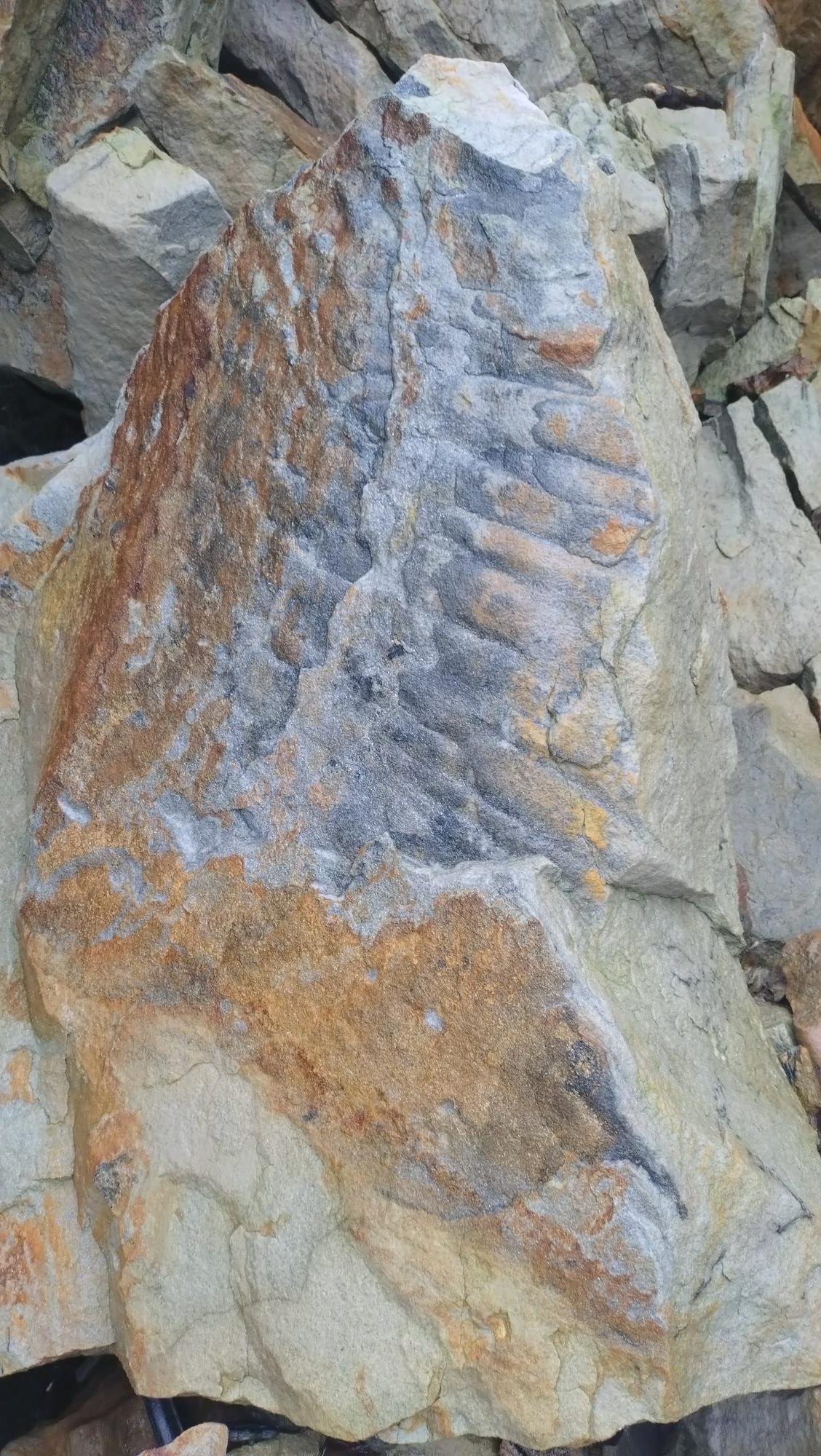

The Northumberland Basin developed as a depression in the lithosphere during the Palaeozoic Caledonian and Variscan orogenies. It extends from near Eyemouth in the north to near Newcastle in the south and contains an extensive archive of Carboniferous strata, previously geologically famous for features such as the Whin Sill and Coal Measures. Recent work on the sedimentary strata in the basin has revealed several high resolution windows into the Carboniferous world, and a review of these will be the focus of this talk. Features to be discussed include the discovery of the largest fossil arthropod in Earth history, Arthropleura, from a fallen block in the cliffs near Howick. This giant millipede-like organism sheds light on arthropod gigantism on Carboniferous Earth, and the surrounding sedimentary rocks enable a high-resolution picture of its habitat to be painted. The talk will also discuss the discovery of a flooded forest floor from Lindisfarne, newly located trackways of early amphibians from Northumberland National Park, and discuss the exceptional tidal sedimentary record of Cocklawburn, where strata record a day-by-day record of tropical shallow seas and the animals that lived there.
Monthly talk: Monday 13th April 2026
Colliding Continents –
Everest, Earthquakes, Environmental Problems;
Unravelling the evolution of the Himalaya
by Professor Mike Searle.
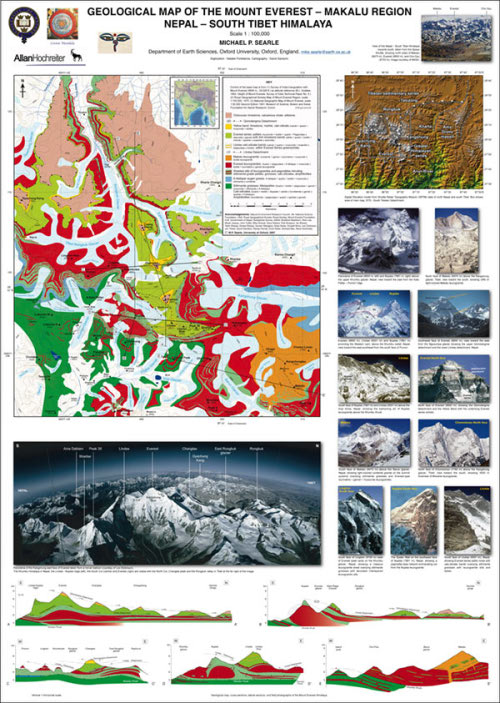
Eight field seasons mapping around the Everest – Makalu massifs in Nepal and south Tibet has resulted in a detailed geological map (scale: 1:100,000). Combining macro- and micro-scale structural mapping with thermobarometry and U-Pb geochronology has unravelled a comprehensive 4-dimensional history of the tectonic evolution of the Himalaya. The 25th April 2015 Gorkha earthquake resulted in 150 km long rupture across Nepal, up to 5 meters of horizontal slip, 1.5 meters of uplift of the peaks north of Kathmandu, large-scale tilting of the Nepal Himalaya, and huge destruction across the mountain regions of Nepal. This talk will briefly summarise the causes and consequences of the earthquake and our charity work rebuilding a village above the epicenter, and constructing a new school and hospital. Recent road, rail, and dam construction in Nepal and especially in south Tibet have the potential to cause huge environmental damage, and this talk will cover some of these ecological problems.
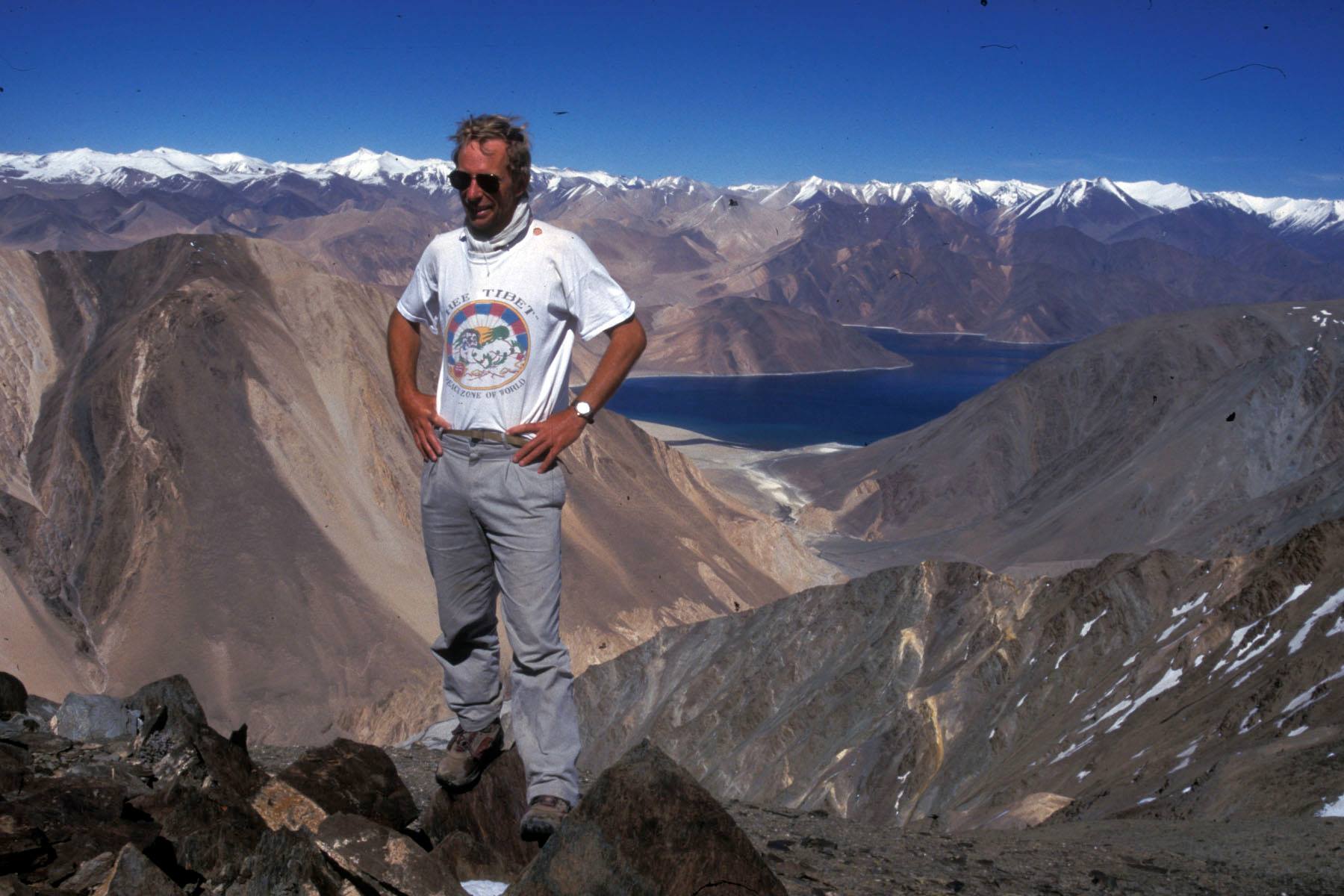
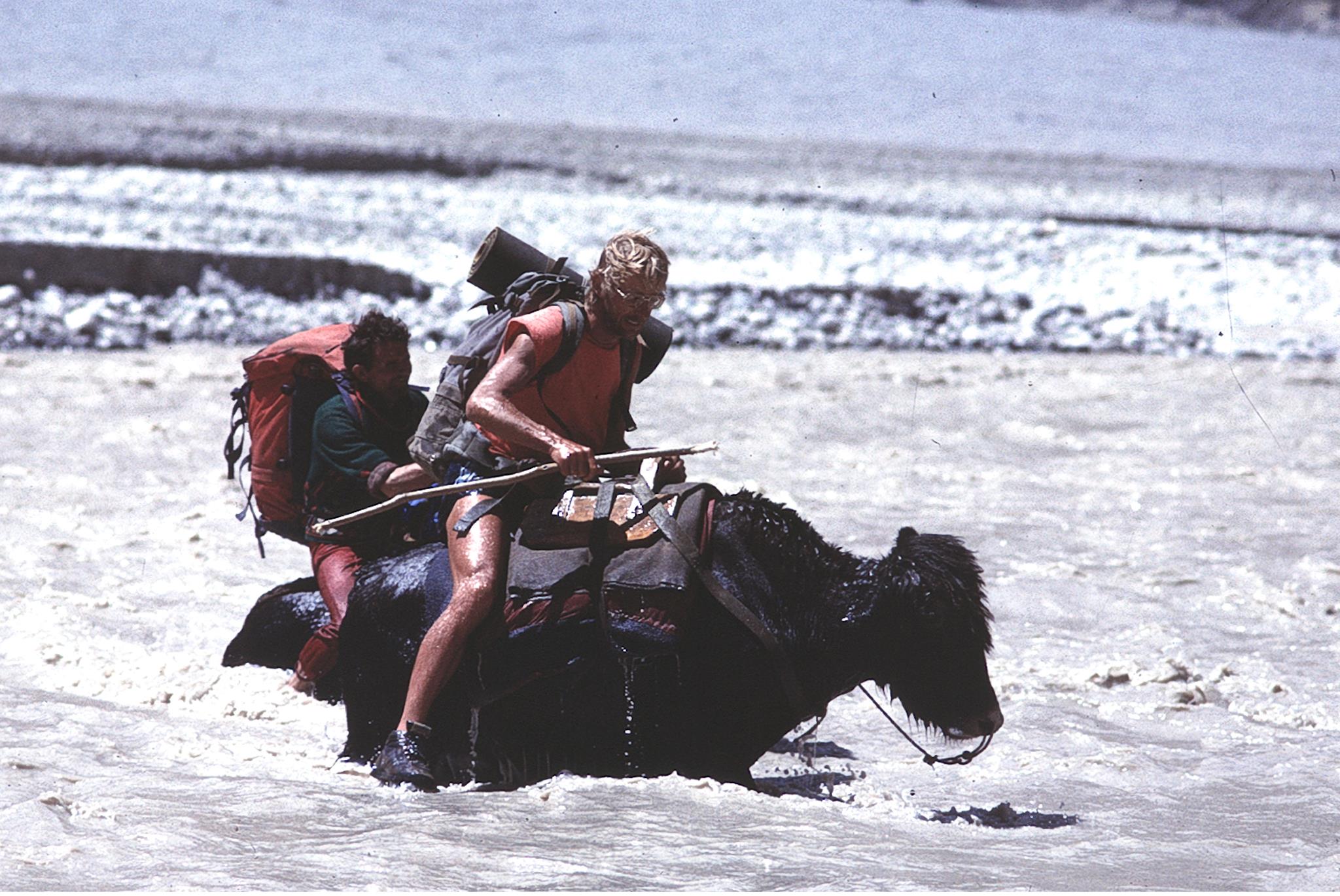
Monthly talk: Monday 11th May 2026
The Geology of Roman Wall Painting: Pigments and Plasters
by Dr Ruth Siddall
Roman artists and plasterers where both receptive and innovative in their painting techniques. Roman pigments were derived from animal, vegetable and mineral sources and artists adopted materials and techniques from the artistic traditions of Greece and Egypt. This left them with a rich palette of paints, of both synthetic and natural origins which led to the development of a colourful urban environment which we can only catch glimpses of today. Roman wall-painting was coeval with the evolution of wall plasters which formed their substrate. These materials were equally manufactured to specific recipes and applied meticulously in a manner that would leave a legacy for wall painting throughout the Medieval and Renaissance periods and are still used for wall-painting traditions in the present day. The majority of these materials being minerals or synthetic analogues of minerals, means that the techniques routinely used by petrographers are particularly apt in their analyses. This talk will present an overview of Roman painting techniques based on the examination of Roman paintings and painting materials, across the extent of the Roman Empire, from Edinburgh to Egypt.
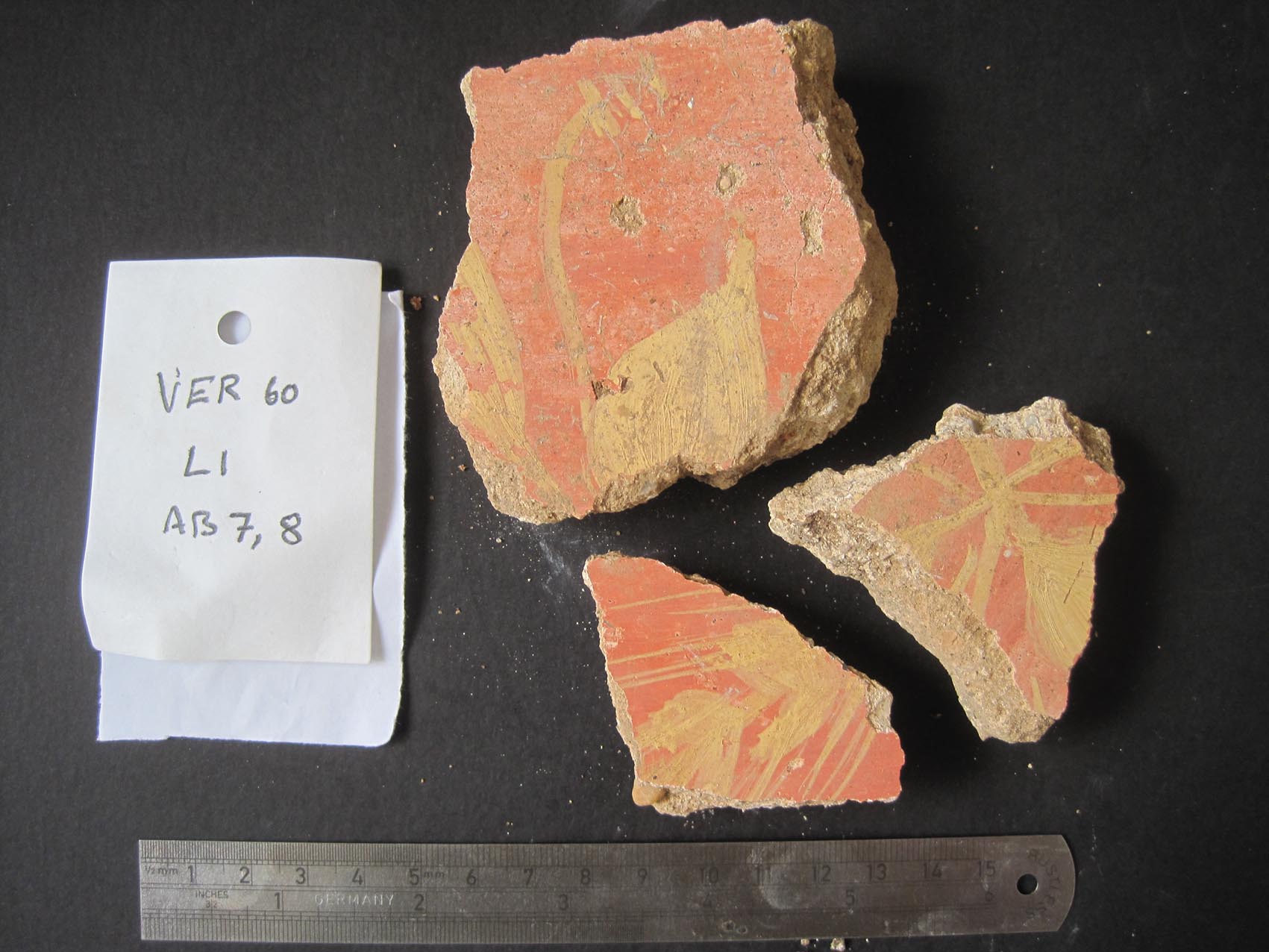
Monthly talk: Monday 8th June 2026
Interpreting Past Environments
by Dr Mike Tuke
Monthly talk: This Meeting will be rearranged at a later date
Exceptional fossils – the Surprising, the Significant and the Strange
by Dr Peter Sheldon
(Please note that this presentation and meeting will not be recorded, so please do try to attend in person!)
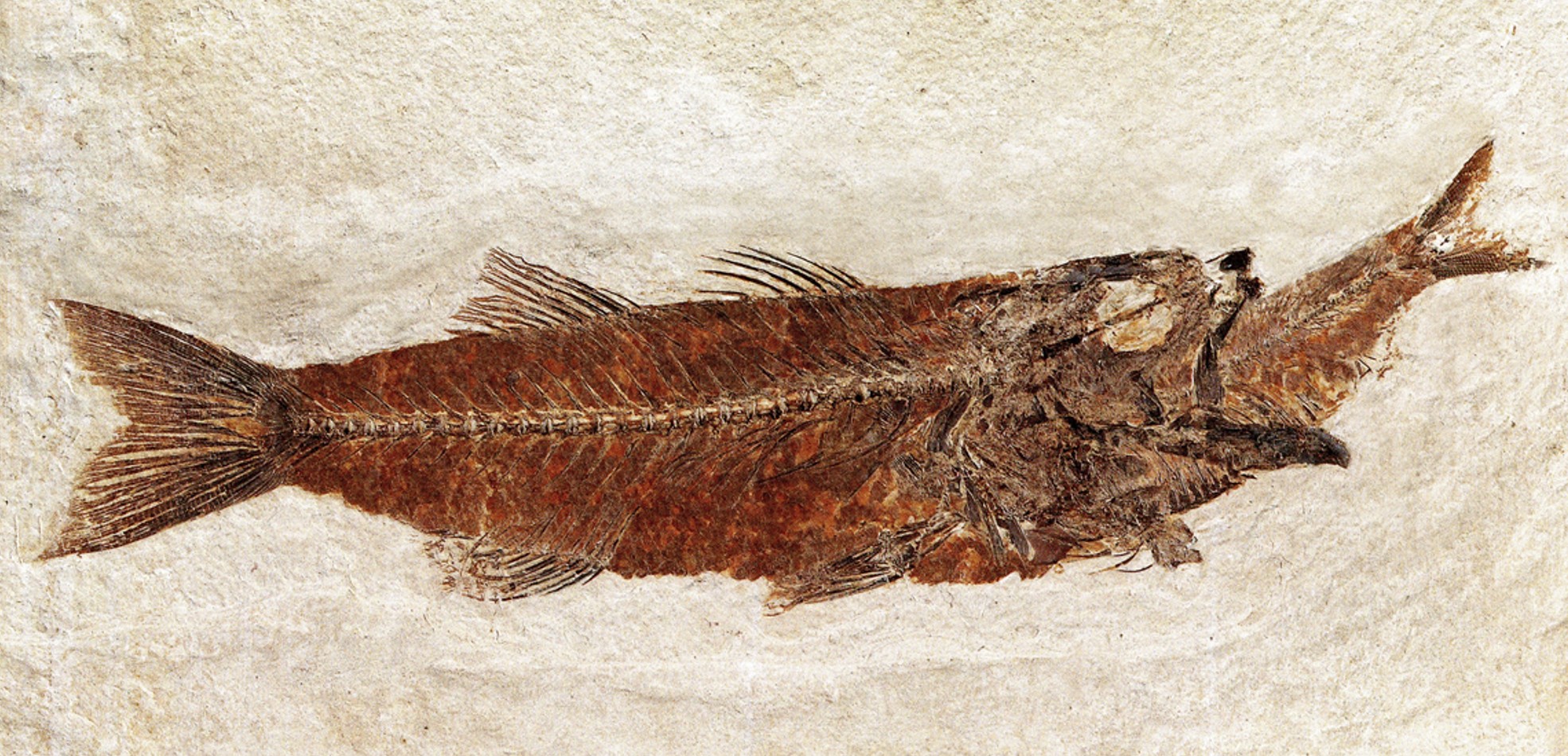
An ever-growing range of extraordinary fossils is shedding new light on the history of life: colour patterns in dinosaur feathers and insect wings; DNA from an ecosystem two million years old; the love song of a Jurassic cricket; and ink sacs of Jurassic squid, to name but a few.
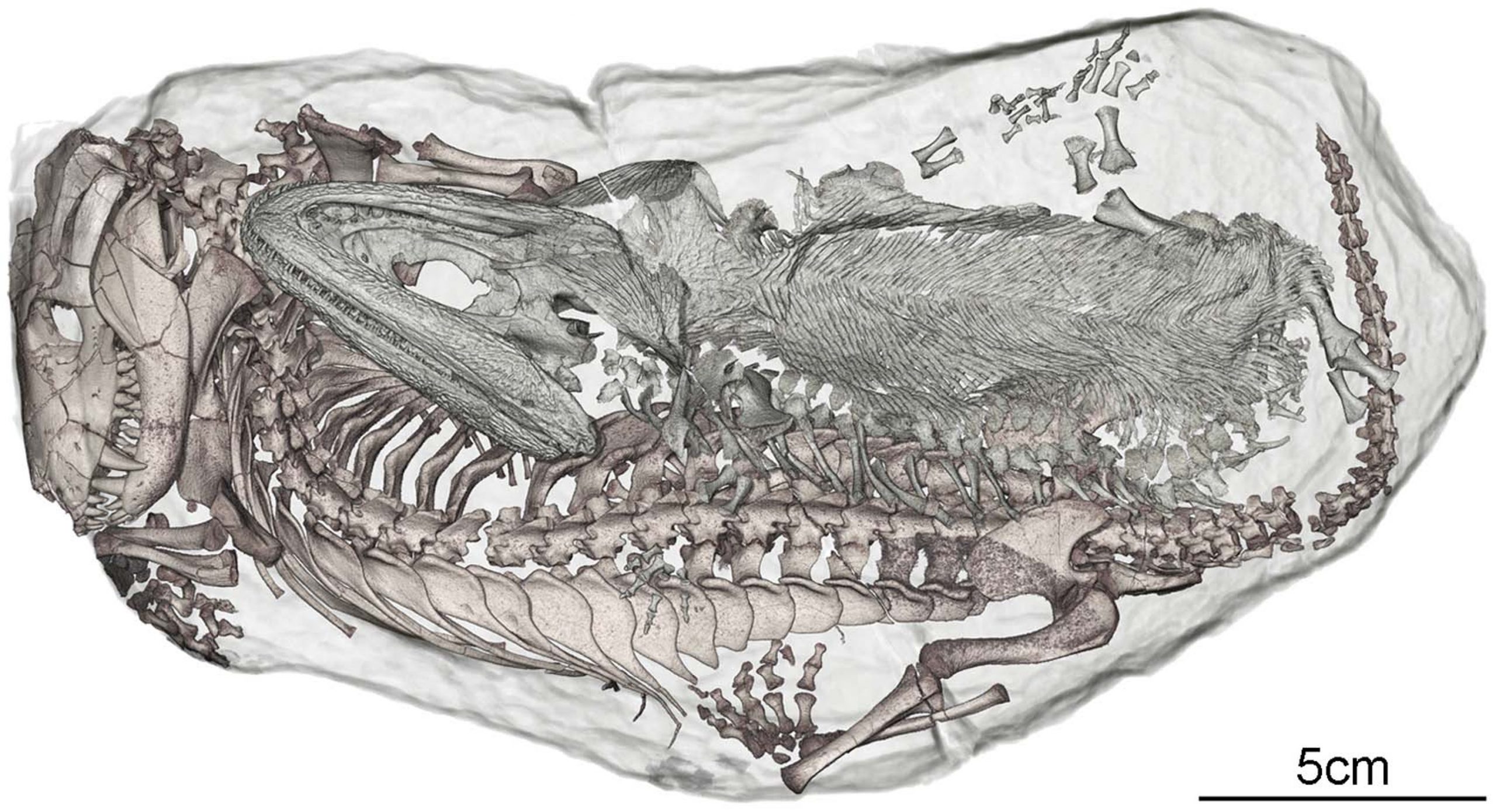
Medical imaging techniques and particle accelerators now make it possible to see inside the rock surrounding rare and fragile fossils, without causing any damage. This talk will include some remarkable, and often surprising, finds from many parts of the world.
Walks and Field Trips: Contact us for details
PREVIOUS EVENTS
Monthly talk: Monday 12th January 2026
Christmas/New Year Celebrations and Members short talks
Our members talks’ evening began with Chris Donnelly giving us an update on the various FenEdge trail walks that have been developed over a number of years, with special reference to ones that have been added in the last year and those earmarked for development this year. She also gave a review of the six Geodiversity Landscape walks which took place last year and outlined some ideas for future ones this year.
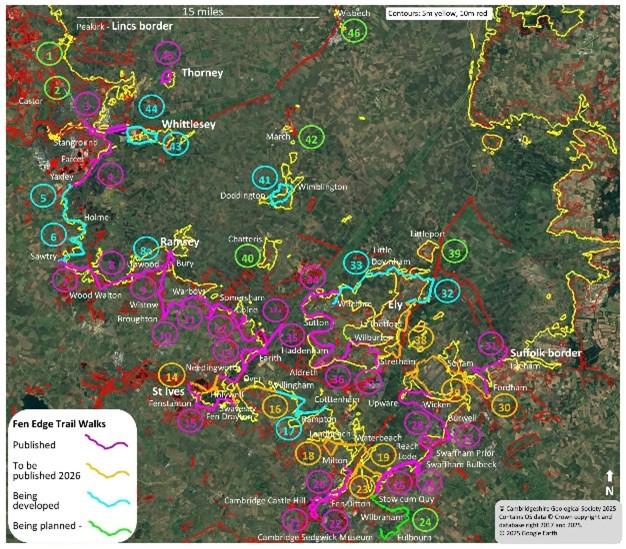
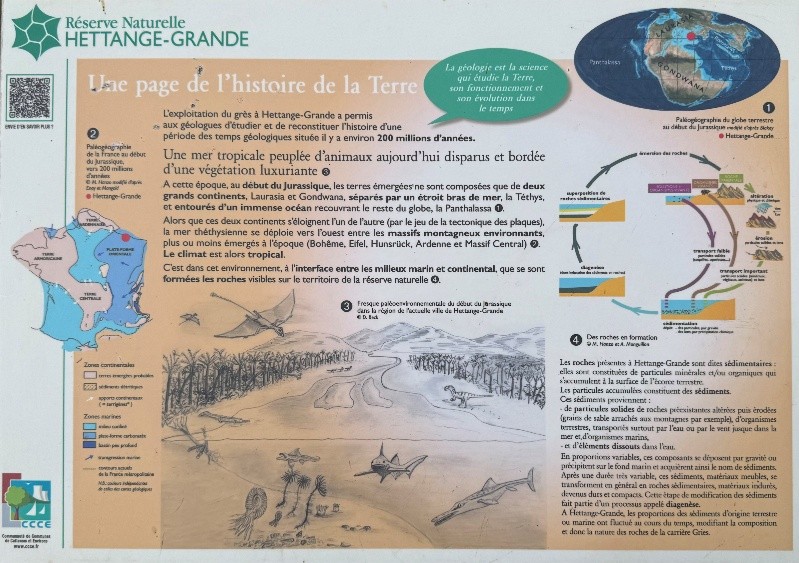
Peter Fletcher followed on after our New Year refreshments and food, with a talk on his field trip to Hettange-Grande in France as part of the OUGS Symposium in Nancy in 2025. He outlined the historical development of this Stratotype boundary between the Triassic and Jurassic in the quarry at Hettange-Grande, by leading French Palaeontologists and Geologists in the 1830-1860s, culminating in Eugene Renevier’s formal proposal for the definition of the Hettangian in 1864. Peter showed some photographs showing the exposures in the quarry and some typical fossils. He then went on to explain how the current GSSP for the Hettangian is located in Austria at Kuhjoch in the Tyrol mountains, following a review of global candidate sites in 2009/10.
Finally, Ian Campbell finished the session by describing his field trip to the North West of Scotland last year, visiting Loch Broom and Ullapool in the south, through Achmelvich and Clachtoll Bays; the Rock Stop café and Loch Glencoul unconformities, to Scourie Bay and Durness beaches in the far North. Ian demonstrated the various features and strata through his series of very interesting photographs, together with a description of the Stac Fada meteorite impact event and ejecta; stromatolites and the “secret” cave at Smoo, near Durness.
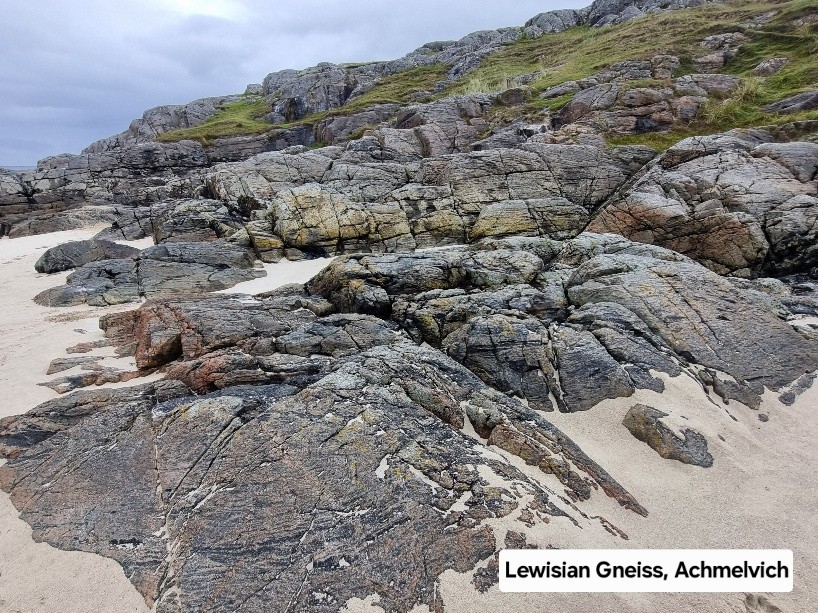
Monthly talk: Monday 8th December 2025
The Oil Industry – Getting Rid of Carbon Dioxide
by Dr John Cook
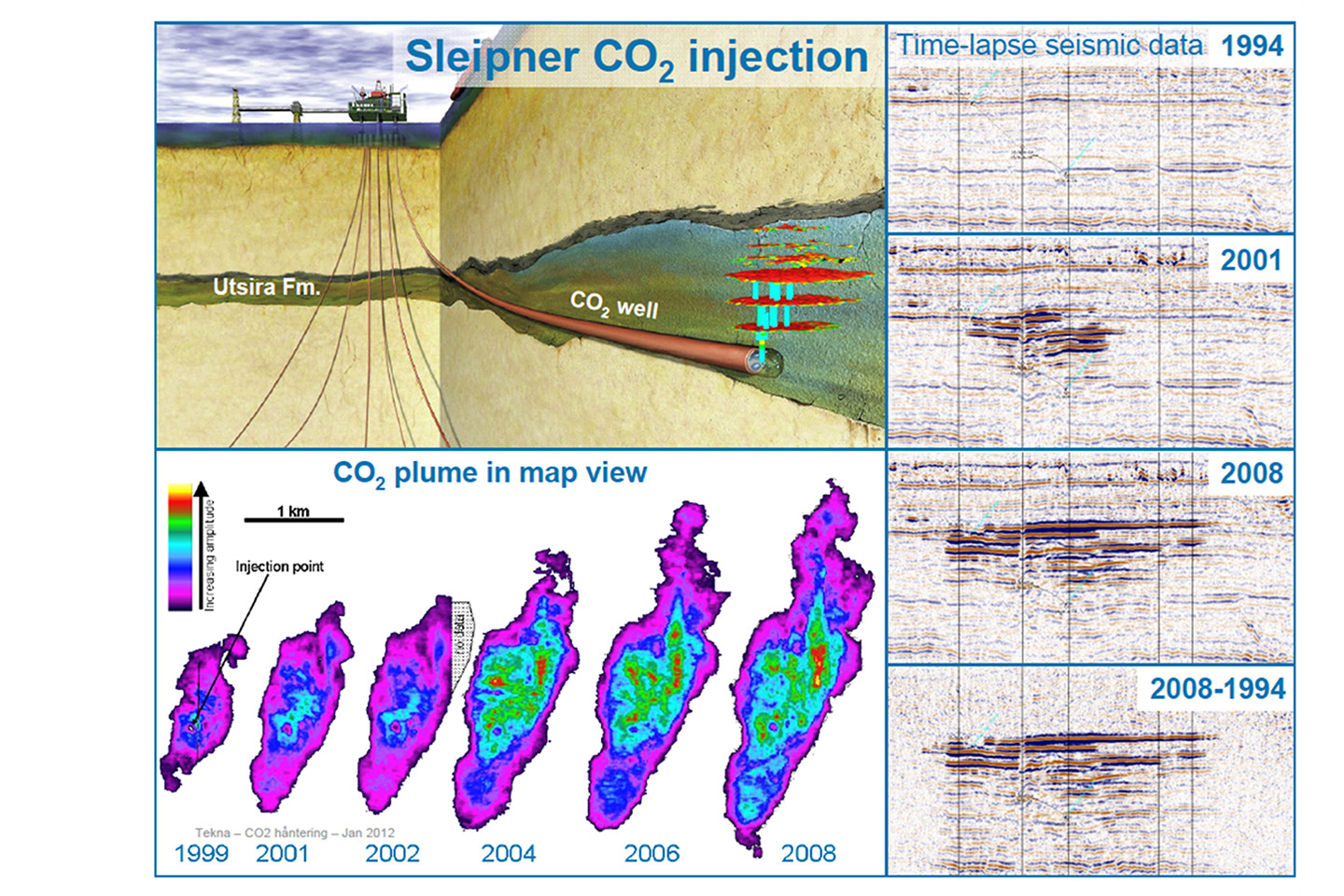
One of the proposed routes for mitigating the impact of greenhouse gases on the climate is to collect carbon dioxide (CO2), from the atmosphere or at source, and put it somewhere safe (usually underground). This is sometimes called CCS – carbon capture and storage (or sequestration), or CCUS – carbon capture, utilization and storage. It’s a controversial topic – many people would like simply to stop producing CO2, others that we should adapt to a new climate. It’s also a key component of the UK’s Net Zero target.
I’ll talk about the various facets of CC(U)S, including the quantities involved, where the CO2 might be put, with an emphasis on geological aspects, and what the downsides and hazards might be.
Monthly talk: Monday 10th November 2025 AGM and Talk: Are We Star Dust or Nuclear Waste? by Dr Robin Catchpole
Everything around us, apart from hydrogen and helium, was made inside stars. The Earth and Sun contain elements made in generations of stars that were born and died before the birth of our Sun and planets. The story of the birth and death of stars is also the story of the battle of matter against the force of gravity. In this talk we will see where elements were made and show how gravity always wins, as stars die, with either a whimper or a bang.
Robin works as an astronomer at the Institute of Astronomy, Cambridge, having retired as Senior Astronomer at the Royal Observatory Greenwich in July 2004. He joined the Royal Greenwich Observatory (RGO) from Bryanston School in 1962. After obtaining a BSc at University College London, he was posted to the Royal Observatory at the Cape of Good Hope, S Africa (now known as the South African Astronomical Observatory) and spent the next 24 years, working first at the Radcliffe Observatory in Pretoria and then at the SAAO in Cape Town.
Following his doctorate at the University of Cape Town on The Properties of the SC Stars and the Chemical Composition of UY Cen, under the supervision of Prof. Brian Warner, in 1991 he returned to the RGO in Cambridge, until it closed in 1998, when he moved to Greenwich as Senior Astronomer. He has authored and co-authored over 120 research papers and articles and used a number of telescopes around the world including the Hubble Space Telescope. Research interests include the composition of stars, exploding stars, the structure of our Galaxy and galaxies with black holes at their centres. His current research interest is in the structure of the Bulge of our Milky Way Galaxy, as shown by Mira variables.
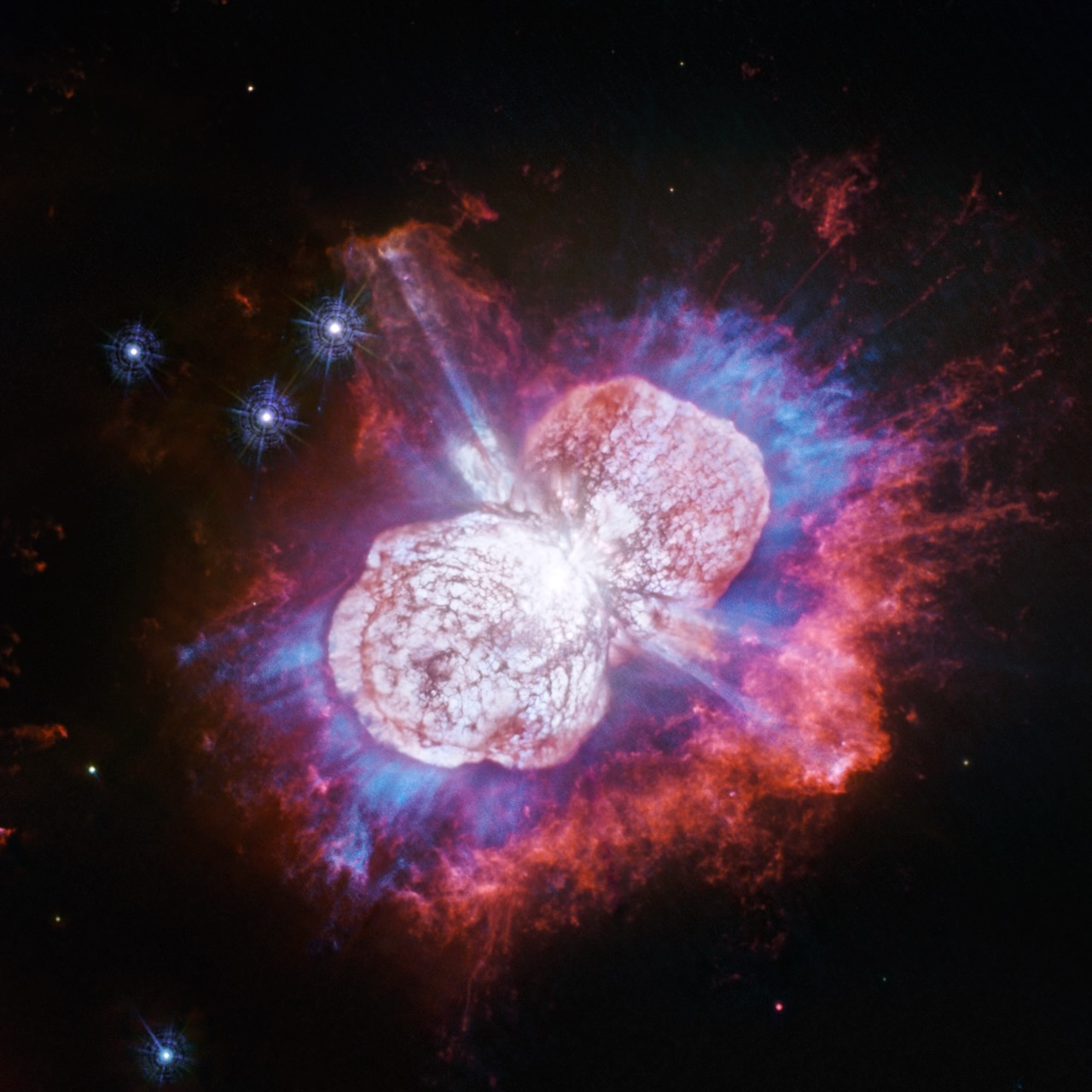
Eta Carina
Telescopes such as Hubble have monitored this super-massive star for more than two decades. The star, the largest member of a double-star system, has been prone to violent outbursts, including an episode in the 1840s during which ejected material formed the bipolar bubbles seen here. Now, using Hubble’s Wide Field Camera 3 to probe the nebula in ultraviolet light, astronomers have uncovered the glow of magnesium embedded in warm gas (shown in blue) in places they had not seen it before. The luminous magnesium resides in the space between the dusty bipolar bubbles and the outer shock-heated nitrogen-rich filaments (shown in red). The streaks visible in the blue region outside the lower-left lobe are a striking feature in the image. These streaks are created when the star’s light rays poke through the dust clumps scattered along the bubble’s surface. Wherever the ultraviolet light strikes the dense dust, it leaves a long, thin shadow that extends beyond the lobe into the surrounding gas. Eta Carinae resides 7,500 light-years away.
Monthly talk: Monday 13th October 2025
The Mass Grave in the Coal Mine:- The Iguanodons of Bernissart
by Franziska Norman
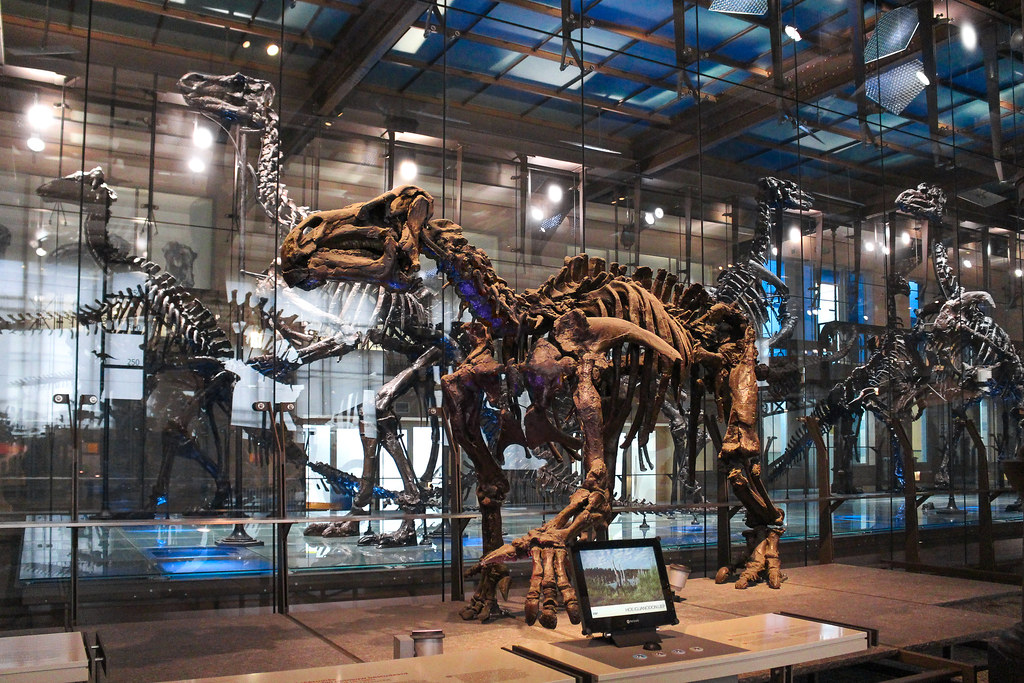
In 1878, miners in the small coal mining village of Bernissart in Belgium discovered the first nearly complete dinosaur skeletons ever found, a group of 30 Iguanodons. This talk will show how the real appearance of these animals differed drastically from previous reconstructions based on only a handful of bones and teeth, and how later research has given us some detailed insights into how these animals lived in their Cretaceous environment.
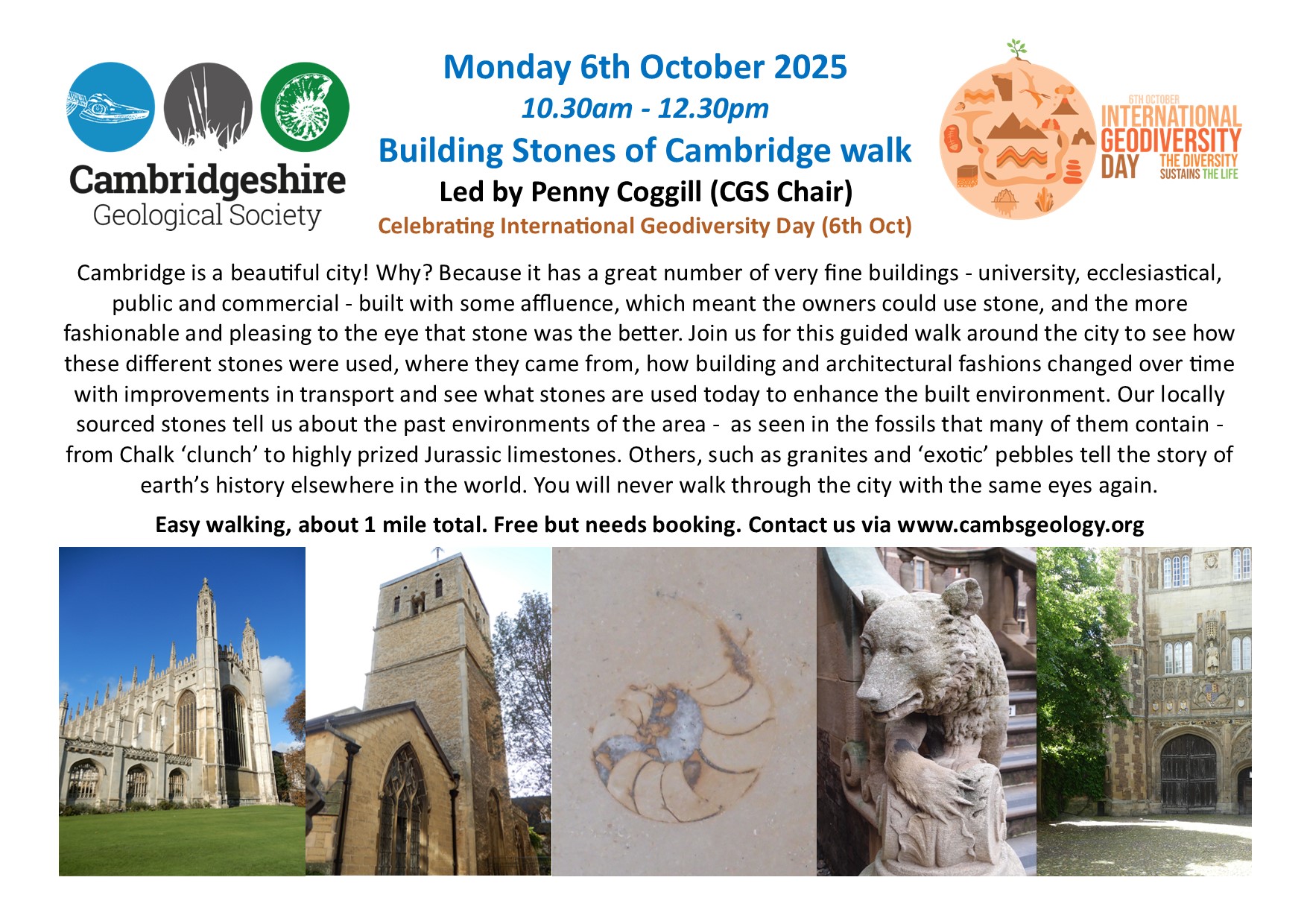
Monthly talk: Monday 8th September 2025
iPhone LidAR Technology – A Geological Tool?
by Peter Fletcher
We are probably aware of the contribution of large scale Lidar surveys to understanding the landscape around us, by organisations using aircraft or drone borne commercial Lidar and 3d mapping systems, but you may not be aware that this technology is to hand for smaller scale modelling in your iPhone Pro (and some other) mobile phones, together with free 3D mapping apps! Peter takes us through the amazing technology that makes this possible, suggests some practical uses and explains the sources of some of the minerals involved.
Peter is a Chartered Civil Engineer and IT Consultant, having spent his career with Civil Engineering Consultants and Contractors, following his degree in Civil Engineering from Newcastle University in the 1970’s. His interest in geology stemmed from geology modules in the degree course under the supervision of Professor Murchison. His career was mostly in Highways in the early days and then a transfer into IT support and Management in the 1980’s. This career developed with Atkins, from UK and Ireland IT Support Lead, to IT specialist focussing on Atkins’ pipeline of Mergers, Acquisitions and Divestments. The last couple of years before retirement was spent back in Civils as a Project Manager for one of AtkinsRealis’ HS2 work packages. Since retirement in 2017 he’s joined OUGS, CGS and Friends of the Sedgwick to brush up on his geology through field trips, talks and self study.
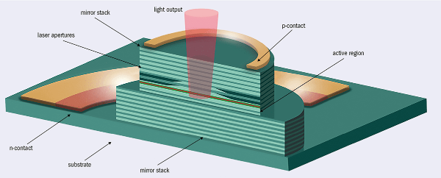

Isostasy explains raised beaches and fossil cliffs, why mountains like icebergs have roots, the shape of rift valleys, the height of Everest and many other aspects of the landscape. The photo is of a raised beach and fossil cliff on the Isle Arran. Mike’s talk will have lots of demonstrations!
Mike Tuke has spent the last 40 years teaching Geology, mostly to A level students: first at Hinchingbrooke Comprehensive School in Huntingdon, then at Cambridge College of Arts and Technology (now Anglia Polytechnic University) and then at Cambridge Regional College. For 5 years he taught part time at Netherhall School, In addition to teaching A level, for many years he taught mature students coming back into education on Access to Higher Education courses. He has also taught degree students and for 15 years he gave training days to PGCE students at the University of Cambridge and was part of the teacher training department at Cambridge Regional College.
Mike has written a book on practical activities for Key stage 3 and a pamphlet for Key stage 2. as well as many articles in Teaching Earth Science and its predecessor Teaching Geology. He is also one of the authors of the A level textbook “Geoscience”
For 11 years Mike was a moderator for coursework for OCR exam board.
Mike’s academic interests include developing visual aids, demonstrations and activities for teaching geology.


Monthly talk: Monday 12th May 2025
Unravelling the glacial history of Eastern England
by Prof Phil Gibbard, Dept of Geography, University of Cambridge
The glacial history of our region has a complexity that is yet to be fully unravelled, but significant discoveries have been made in recent years that throw light on the glacial, periglacial and interglacial periods that have transformed our landscape. Phil is a Quaternary geologist, and this talk will describe how the dramatic changes in palaeoenvironments over the last 500,000 years or more, have been revealed by a study of our regional geology.
Phil is a Quaternary geologist whose interests include Pleistocene/Neogene geology, sedimentation and stratigraphy, using multi-disciplinary methods to establish changing palaeogeography and palaeoenvironments.
As a geologist, Phil is principally involved with the Quaternary and late Neogene, including its palaeogeographical and palaeoenvironmental evolution, with interests spanning the terrestrial (glacial, fluvial and lacustrine) and shallow marine realms. His studies have mainly focused on Europe, but he has conducted research in North America, the Mediterranean, South Asia and South America. His approach is based on the rigorous stratigraphy of sedimentary sequences, using a wide range of techniques, and its purpose is to develop detailed frameworks which have provided the basis for palaeoenvironmental, palaeoecological and palaeogeographical reconstructions.
Phil’s work in Britain has mainly been on the stratigraphy, sedimentology and palaeoenvironments of Quaternary and late Neogene sediments in southern England and adjacent areas. His particular interest has been on the interaction of glaciation, rivers, lakes and the sea, and began with thesis research (supervised by Professor R.G. West ) that unravelled the River Thames’ diversion from a course through East Anglia to that through London. Detailed stratigraphical schemes have since been developed for the Thames’ drainage system, and this work has been influential in encouraging others to adopt similar approaches to drainage history studies in other regions. The work provides a foundation, not only for geologists, but for archaeologists, palaeontologists and engineers.


Monthly talk: Monday 14th April 2025
Shooting Stars and Space Rocks
Comets and Meteors can be an impressive sight in the night sky, but the study of them has told us a huge amount about the origins of the Solar System and the Planets including Earth. Paul will show where these space rocks and dirty snowballs come from, and the story that they reveal including the implications for life on Earth and beyond.
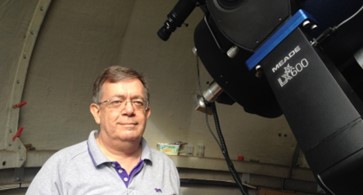
Having built his first telescope aged 14 and experiencing the “wow” of seeing the rings of Saturn for the first time, Paul has been stargazing for some 45 years and has his own private observatory where he images the sky. He is chairman of the Cambridge Astronomical Association and presents the public live observing evenings at the University of Cambridge to audiences of 200+ each week. He holds a Master’s degree in Natural Sciences from the University of Cambridge and a post-graduate degree in Computer Science, also from Cambridge. He is a Fellow of the Royal Astronomical Society and of the Institute of Engineering and Technology. Twice a winner of the Queen’s award for Technology he was recently presented a lifetime innovation award by Emmanuel College Cambridge.
Monthly talk: Monday 10th March 2025
Crossrail Construction
by Dr Ursula Lawrence, WSP (Real Estate and Infrastructure) Ltd
A summary of the Crossrail project, explaining the main construction methods for the tunnels and stations. The Cretaceous to Holocene geology encountered along the route is presented including both the impact the geology has on the engineering and how recent infrastructure investigations have developed our knowledge of the geology of London. It also compares and contrasts the London geology with the Gault, more familiar locally.
Ursula is an engineering geologist with 35 years experience of geotechnical design of major infrastructure projects having worked on Crossrail and various sections of HS2. Ursula has a PhD in Civil Engineering and a Chartered geologist. Ursula has been involved with both the Engineering and South East Regional Groups of the Geological Society culminating in Chair of the Engineering Group 2020-2022. She has published a number of papers on ground risk in major infrastructure, London Basin geology and groundwater and the Clay-with-flints Formation. She is currently Assistant Editor of Quarterly Journal of Engineering Geology and Hydrology.

Monthly talk: Monday 10th February 2025
Railway Quaternary Geology
by Dr Sebastian Gibson, Dept of Earth Sciences, University of Cambridge
Dr Sebastian Gibson is a Quaternary geologist who focuses their research on glacial stratigraphy and luminescence dating, working out the complexities of past glacial advance over lowland areas. As a lifetime railway enthusiast, it has long been a goal to combine their interests! Considering civil works often at best simplify Quaternary soils and at worst ignore them, with profound consequences, such an opportunity arose. For the past 10 years, Sebastian has been a Formation Expert for the prestigious High Speed Two project, as well as providing consultancy to a wide selection of firms. Working tirelessly to highlight the importance of Quaternary geology and its effect on design and delivery of infrastructure projects. Sebastian wants to talk on the complexities of Quaternary stratigraphy in the English West Midlands, as well as highlighting a new project here in Cambridge along the proposed East West Railway.

Monthly talk: Monday 13th January 2025
Members’ talks and New Year Social

An informal evening of short talks by members, a quiz and some festive refreshments. Non members are also welcome and it is a chance to learn more about the Society and local geology. Remember to bring a few rocks and fossils for the ‘show and tell’ table.

Monthly talk: Monday 9th December 2024
The Geodiversity Landscapes of Cambridgeshire
by Dr Steve Boreham, CGS Geosites team & WildReach
Images from this talk can now be seen on the Landscapes page
The CGS Geosites team has recently developed a landscape approach to describing the geology of Cambridgeshire and the geological (and geomorphological) features to be found here. This sets the geology in a context familiar to most people and also links it with local ecology and the key role that it has played in the economic development of the county, from limestone, chalk and clay to gravel, sand and peat. Our aim is to provide a comprehensive description of local earth heritage and to promote its geoconservation.

Steve Boreham (BSc PhD) is a geologist and ecologist with a special interest in Southern England, East Anglia, Fenland and the Cambridge District. He worked for the University of Cambridge, managing laboratories and teaching field and laboratory classes for more than 30 years before retiring in 2020. Steve has published several papers on the geology of Cambridgeshire and works with the Cambridgeshire Geological Society to protect the county’s geodiversity. He also assists the National Trust at Wicken Fen, The Wildlife Trust BCN at Great Fen, and Hobson’s Conduit Trust in Cambridge to enhance biodiversity, improve water quality and to protect peatland resources.
Monthly talk: Monday 11th November 2024
NOTE 7.15 pm start
Please arrive at 7 pm for 7.15 start as the talk will be preceded by our (short) AGM
The oldest fossilised trees ever found
by Dr William McMahon, Dept of Earth Sciences, University of Cambridge
The finding of what’s thought to be Britain’s oldest fossilised trees, calamophyton, and the world’s earliest known fossilised forest, in the cliffs in the Devonian age Hangman Sandstone Formation in Somerset.


The evolution of trees and forests through the Devonian Period fundamentally changed the Earth’s land biosphere, as well as impacting physical environments and geomorphology by stabilizing sediments and interacting with flowing air and water. The precise timing after which forests were key components of this greener Earth system remains not so well understood. In this talk I will describe a recently discovered forest landscape within the Middle Devonian (Eifelian) Hangman Sandstone Formation of Somerset and Devon. This unit had previously been considered palaeobotanically depauperate, but new fieldwork has shown it contains the earliest fossil evidence for trees in the British record, as well as the oldest known evidence globally for the relative position of standing trees: in common parlance, a fossil forest. In addition to abundant fossil material attributable to the cladoxylopsid tree Calamophyton, and other early Mid-Devonian flora, the sedimentary context of the plant remains sheds light on the biogeomorphic impacts of these earliest forests.
The trees colonized a sizeable fluvial system that was prone to seasonal disturbance events. The nature of the sedimentary system has created a bias to those areas where biogeomorphic signatures are most frequently recorded (from the distal parts of the system), but across the whole system there is evidence of plant–sediment interactions in the form of vegetation-induced sedimentary structures, rooting features and accumulations of plant debris. The Hangman Sandstone Formation is illustrative of the revolutionary power of trees as biogeomorphic agents, forming densely spaced forests and shedding exceptionally abundant plant debris, while also impacting local landforms and sediment accumulations and profoundly changing landform resilience against flood disturbance events. These findings provide evidence that the Eifelian Stage of the Devonian (393.3–387.7 Ma) marks the onset of tree-driven changes to physical environments that would forever change Earth’s non-marine landscapes and biosphere.
Monthly talk: Monday 14th October 2024
The history of building stone use in south Cambridgeshire churches
by Dr Nigel Woodcock Department of Earth Sciences, University of Cambridge
A geological survey of about 120 medieval churches in south Cambridgeshire reveals a dominant theme of local fieldstone rubble walls with dressings of local Cretaceous Clunch and imported Jurassic Barnack limestone; the richer the church the greater the volume of costly Barnack. The Cretaceous Ely Sandstone forms rubble walls only near the city. Victorian renovations to the medieval fabric of south Cambs churches used a much wider range of stone from the Lincolnshire Limestone Formation and further afield, made possible by new canal, then rail, networks. St Laurence at Foxton, for example, has fieldstone rubble walls, partly rendered, with medieval dressings of Barnack and Clunch, much repaired with Bath stone in the nineteenth century.

Back in 1994 I presented a talk at a European conference entitled “Chalk, white, as above!”, because that was the comment frequently seen on core logs, geologists’ description sheets and engineering geologists’ well logs. Just how much information were we losing because of this phrase? Over the last 30 years our understanding of chalk deposition, and the environmental conditions which control it, have fundamentally shifted. Hopefully I can convince you that this might be the case.’

Other organisations’ events
Friends of the Sedgwick Museum
The Friends organise a series of lectures in Cambridge (doors open, 6.15 pm for 7.00 pm in the Department of Earth Sciences) during autumn and winter and field trips during the spring and summer. They also organise overseas field trip in the UK and overseass. More information.
Cambridge Natural History Society
CNHS organise a series of talks (winter) and excursions (all year). Talks are usually held at the Attenborough Building next to the Zoology Museum. Visitors welcome (small charge) More information.
Courses at the Institute of Continuing Education of University of Cambridge
The ICE holds many interesting courses, at Madingley Hall near Cambridge, including some on geology, local landscape, evolution and archaeology e.g. Extinctions: crises in the history of life with Peter Sheldon
Online courses
Future Learn has a number of short, online courses on geological and related subjects. These courses are free and very easy to follow. Ideal for introductions to many subjects. Courses include Extreme Geological Events, developed by Cardiff University, The Earth in my pocket: an introduction to geology and Extinctions Past and Present.
The Open University has free online courses on Geology, for example: Earthquakes, Geological Processes in the British Isles, Introduction to geology, An introduction to minerals and rocks under the microscope, Life in the Palaeozoic, Mountain building in Scotland, Plate Tectonics, Volcanic hazards.
U3A Geology groups
There are a few local geology groups run by U3A: Cambridge Peterborough
Other Talks
For details of many other talks and societies in the Cambridge area see the CONDUIT publication issued by the Cambridge Antiquarian Society. It gives contact details for the many organisations working to promote interest in history, particularly that of Cambridgeshire. The latest issue of CONDUIT can be downloaded from their website.